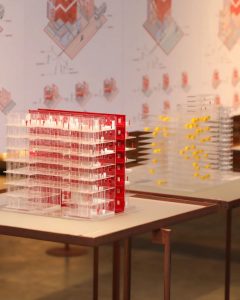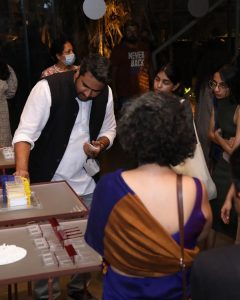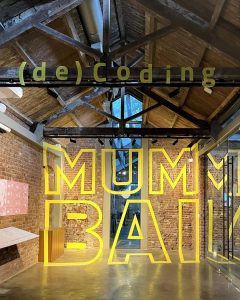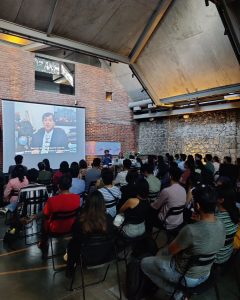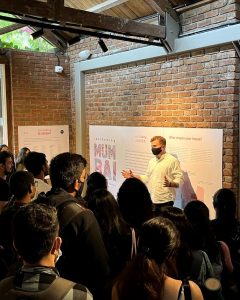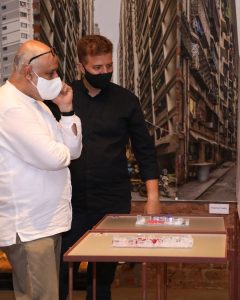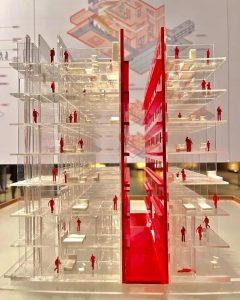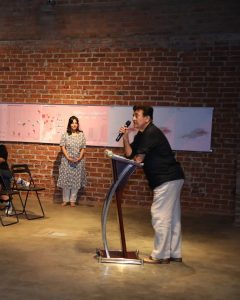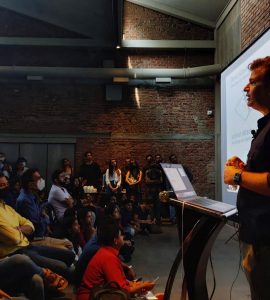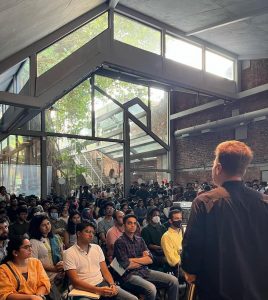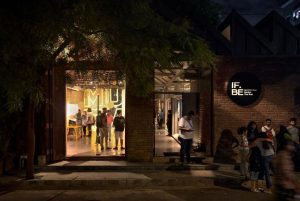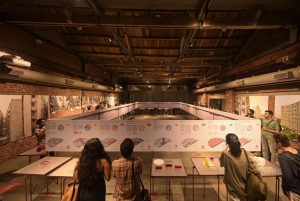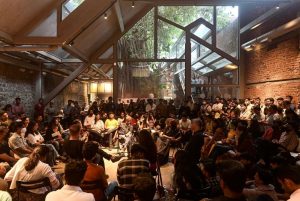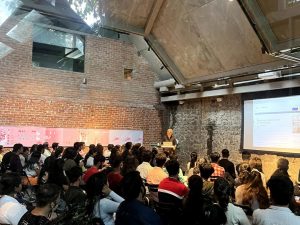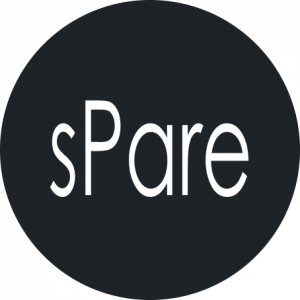(de) Coding Mumbai
About the event
(de) Coding Mumbai documents the development of Mumbai’s housing fabric through the evolution of building and development codes. From the first regulations emerging as a panacea for the plague of 1896 to building codes that allow an architecture that spreads disease, it seems that the city of Mumbai has come full circle. Along the way in the last 100 years, different regimes, actors and their preoccupations have shaped the regulations for housing in the city of Mumbai. These regulations in turn shape the housing and urban form of the city impacting directly the lives of its residents.
Through 18 case studies, the exhibition and book attempts to document and analyze the trajectories of Mumbai’s building codes. Tracing its interrelationships with socio-political and economic currents both domestic and international, (de) Coding attempts to make explicit the making of Mumbai’s physical form.
The Program:
12th June, 11:00am-12:00pm – Exhibition tour by Sameep Padora
Sameep Padora, principal architect at sP+a and sPare, will walk through the 18 case studies, which document and analyze the trajectories of Mumbai’s building codes. (de)Coding Mumbai makes explicit the making of Mumbai’s physical form by tracing its interrelationships with socio-political and economic currents, both domestically and internationally.
14th June, 5:30pm-7:30pm – ‘Built from Codes for Housing Everyone: Drafting a design Manifesto’ workshop by Hussain Indorewala
This workshop is imagined as an exercise in engaging with various stakeholders in the city, and their motivations when it comes to large-scale housing projects. The workshop is open to architects, urbanists, activists, students, or anyone interested in thinking about the ideas that ought to inform the shape of our built environment.
15th June, 5:30pm-6:30pm – Exhibition tour by Sameep Padora
Sameep Padora, principal architect at sP+a and sPare, will walk through the 18 case studies, which document and analyze the trajectories of Mumbai’s building codes. (de)Coding Mumbai makes explicit the making of Mumbai’s physical form by tracing its interrelationships with socio-political and economic currents, both domestically and internationally.
17th June, 6:30pm-8:30pm -‘Ghar Mein Shehar Hona (Part III)’ performance presentation by CAMP
In this video lecture format honed after years of events held at their rooftop studio and fuelled by archives they cultivate, CAMP presents a story of virtual and real landscapes in Mumbai – via RTI, TDR, Cyprus, Capital Flight, GBGB Andolan, Songs, Stings, Drones, CCTV, .pdf and .xlxs among other strategies, technologies and politics developed in the first decades of the 21st century.
18th June, 5:30pm-7:30pm – Lecture by Sameep Padora
Sameep Padora, principal architect at sP+a and sPare will put forward the research presented in the exhibition. The lecture will focus on the changing preoccupations of building regulations in Mumbai over the last century, as well as the corresponding built forms that have been produced in response to building regulations. The lecture will also lay out considerations for planning in the near future.
19th June, 11:00am-1:00pm ‘Understanding Building Regulations’ workshop by Prasad Shetty
Geared towards conceptually engaging with the idea of building regulations, this workshop encourages participants to think about ways to understand the idea of law, to think about framing laws and bye-laws, policies, and so on. The workshop is open to architecture and planning students, industry professionals, or generally anyone interested in finding out how to understand building regulations.
22nd June, 5:30pm-7:30pm – ‘Mumbaikars’ discussion between the residents of the documented case studies
Usually, discussions on housing in public forums are organized around expert opinions. This panel discussion invites residents and inhabitants of projects that are documented in the book and share their thoughts, experiences, aspirations, and views of inhabiting their specific forms of housing.
25th June, 5:30pm-8:30pm – ‘Housing future: Mumbai’ panel discussion
Moderated by Hussain Indorewala, the concluding panel discussion brings together opinions and ideas on the future considerations for housing in Mumbai. This panel brings together six experts from a diverse set of practices, intellectual positions, concerns, and forms of engagement with the city of Mumbai.
